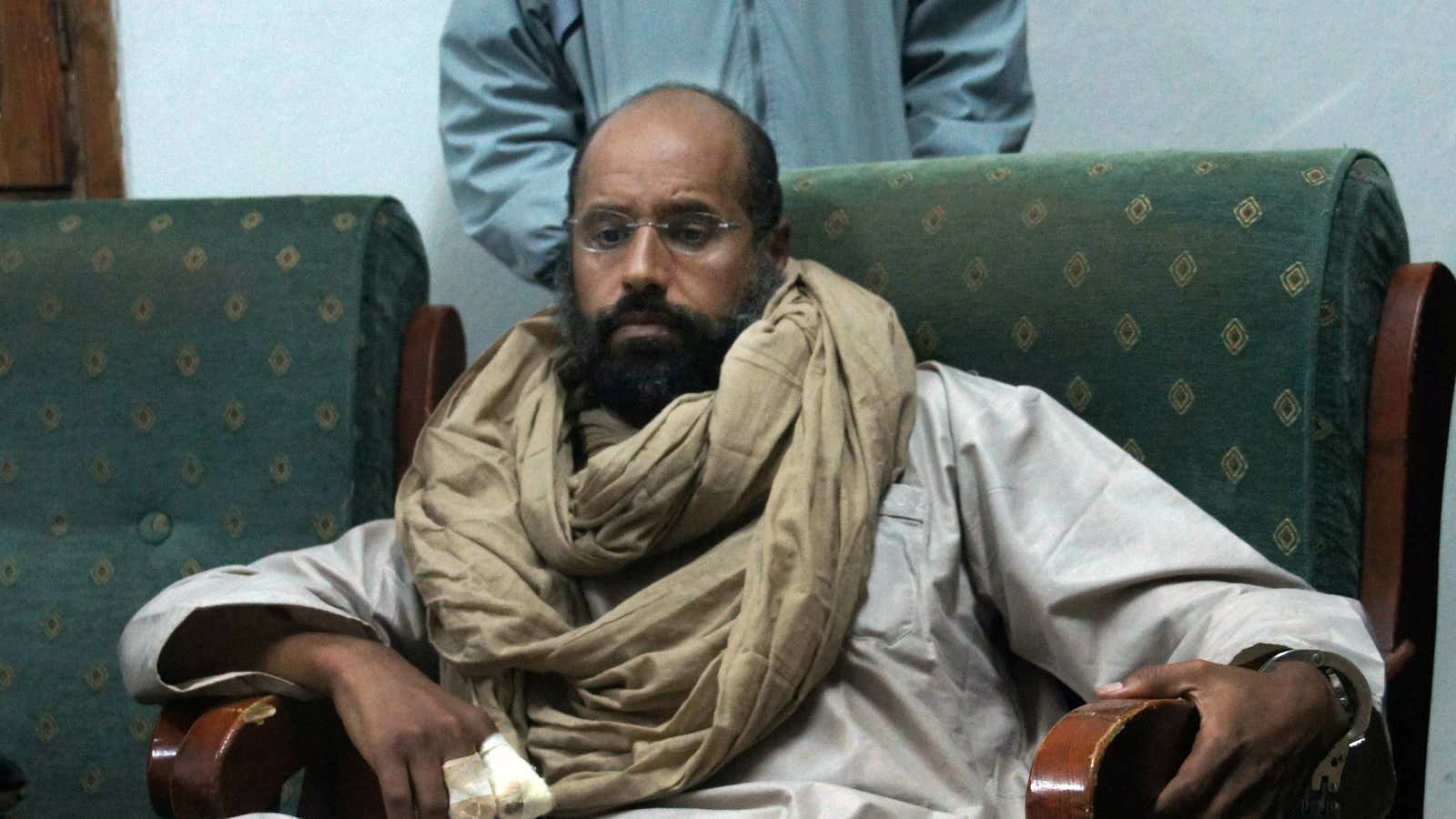The son of former Libyan leader Muammar Gaddafi, Saif al-Islam, has been sentenced to death by a court in Tripoli.
Saif, who was absent in court, is among eight other former officials of the Gaddafi regime judged to have committed crimes against humanity during the 2011 revolution that toppled his father from power. Others who are to be executed by firing squad include the former prime minister, Baghdadi al-Mahmoudi, and spy chief Abdullah al-Senussi.
But will Saif actually be executed? He has been held by militias in Zintan, a region in northwest Libya, who have refused to hand him over to authorities since capturing him in 2011. The group, which is allied to the government in Tobruk that has the support of the international community, does not recognize the regime in Tripoli.
Since the west’s “coalition of the willing” intervention in Libya that helped remove Gaddafi from power three years ago, Libya has descended into chaos. There are essentially, two parallel governments claiming authority over the country. Once hailed by the New York Times as a model for humanitarian intervention, things have deteriorated to the extent that some are calling it the next failed state. The problems in Libya have fueled a huge migrant crisis in Europe, with thousands fleeing across the mediterranean.
Once considered the heir to his father, London-educated Saif—who is also wanted by the International Criminal Court for similar charges—has a right to appeal the decision. He reportedly told his captors in 2011:
I am not afraid to die but if you execute me after such a trial, you should just call it murder and be done with it.
His father, Muammar, ruled Libya for over four decades before he was overthrown and killed during the Western government-led bombing campaign following the Arab Spring in 2011. Saif’s brother, Muatassim, was also killed brutally during the uprising.
